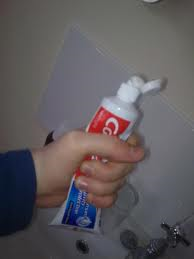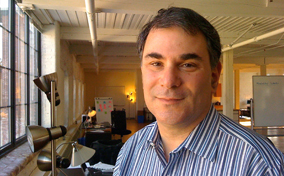 Here’s the thing about toothpaste tubes. You can squeeze all you want on one part of the tube and the toothpaste will only pop up in another part of the tube. Many of today’s important systems operate much the same way.
Here’s the thing about toothpaste tubes. You can squeeze all you want on one part of the tube and the toothpaste will only pop up in another part of the tube. Many of today’s important systems operate much the same way.
The big challenges we face today including health care and education are systems issues that require systems solutions. These systems have evolved over a long time and are well intentioned. Players in the system work hard year after year to deliver value, improve their position, and create sustained incremental improvements. It is not enough. We need new toothpaste tubes. We can’t fix these system issues by squeezing harder on different parts of the tube. We need to design and experiment with new system level solutions.
Everyone loves to point fingers at the other players in the system as the cause of the problem. Health care is a classic example. Observing our health care system today is like watching an intense rugby scrum that is moving in slow motion hoping the ball will pop out. Finger pointing and incessant public policy debates galore. We love to admire the problems: It is the cost of drugs that is killing us. It is the high cost hospitals that are the problem. It is the insurance companies that are in the way of change. Doctors are the ones who are resisting change. If only the government would get its act together. If only patients would take more responsibility for their care. It goes on and on.
In education, the same movie is playing with different actors. It’s the unions that are getting in the way. Teachers are resisting change in the classroom. Administrators don’t understand what is going on in the classroom. Parents are not engaged. Public policy makers can’t make up their minds. If only private sector companies were more engaged. Students are unruly, undisciplined, and disrespectful. Everyone is blamed and nothing changes.
I’m not a cynic. I’ve seen and participated in many innovative initiatives that are trying to create systems-level changes within healthcare and education. And some of them have indeed succeeded in creating incremental value. But where are the disrupters? Where are the systems-level game changers? The problem is that great ideas coming from one silo are tried but quickly bump into the other silos and constraints of the system. Promising new solutions squeeze on one part of the toothpaste tube only to learn that when you squeeze on one part of the tube it just pops up in another. We need safe environments to design and experiment with new toothpaste tubes or systems.
 The student and the patient should be at the center of our redesign efforts in education and health care. We need to experiment at the systems level, trying new approaches to see what works. For instance, we’ve proven that innovation works at the school level with hundreds of successful charter schools across the country. Now we need to experiment at the district level to test new student centered system approaches that are not constrained by the way the current system operates. That is the only way we are going to learn what solutions can deliver value to the student at scale. The same thing is true in health care. We need to design and test patient centered system approaches that are more about well care than about sick care. We can’t get there by playing at the margins of today’s system. Squeezing today’s toothpaste tubes harder will not work.
The student and the patient should be at the center of our redesign efforts in education and health care. We need to experiment at the systems level, trying new approaches to see what works. For instance, we’ve proven that innovation works at the school level with hundreds of successful charter schools across the country. Now we need to experiment at the district level to test new student centered system approaches that are not constrained by the way the current system operates. That is the only way we are going to learn what solutions can deliver value to the student at scale. The same thing is true in health care. We need to design and test patient centered system approaches that are more about well care than about sick care. We can’t get there by playing at the margins of today’s system. Squeezing today’s toothpaste tubes harder will not work.









Leave a Reply